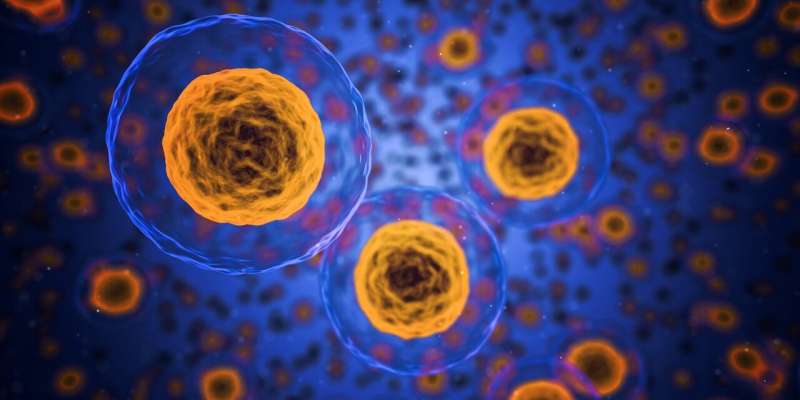This article has been reviewed according to Science X's editorial process and policies. Editors have highlighted the following attributes while ensuring the content's credibility:
fact-checked
peer-reviewed publication
trusted source
proofread
Scientists reveal how XBP1s interacts with IL-15 to enhance the survival of natural killer cells

A new study published in Science Immunology points to a promising therapeutic approach for future cancer treatments based on natural killer cells (NK), which are immune cells that bind to tumor cells and destroy them.
City of Hope scientists created a knockout mouse model for a protein called XBP1s to explore the molecule's effect on NK cells and its role in fighting cancer. Earlier studies showed that XBPIs strengthened the survival of NK cells, but precisely how was unclear.
The team identified a previously unknown mechanism in which interleukin-15 (IL-15)—a protein naturally made by cells in response to pathogens—interacts with XBP1 to launch a series of events that boost NK cells' survival and their ability to cause tumor change.
First, XBP1s increases NK cells' response to a survival gene called Pim2. Next, XBP1s interacts with a transcription factor called T-bet to promote the production of a protective cytokine that enhances NK cells' function and anti-tumor immunity. Conversely, low levels of XBP1s impair NK cell functions and anti-tumor immunity.
City of Hope's team had previously identified XBP1s as an essential transcription factor downstream of IL-15 and AKT signaling, a pathway that promotes human NK cell survival and functions. However, the target genes downstream of XBP1s in NK cells—as well as how XBP1s regulates NK cell survival and function—remained unknown.
In immunotherapy, NK cells have emerged as safe and promising therapies for patients with certain cancers. Scientists have found it challenging, though, to enhance NK cells' cytotoxicity to tumors and long duration in patients undergoing treatment.
In this study, the authors demonstrated that XBP1s plays a critical role in controlling IL-15-mediated NK cell survival in vitro and in vivo.
More information: Shoubao Ma et al, An XBP1s–PIM-2 positive feedback loop controls IL-15–mediated survival of natural killer cells, Science Immunology (2023). DOI: 10.1126/sciimmunol.abn7993

















